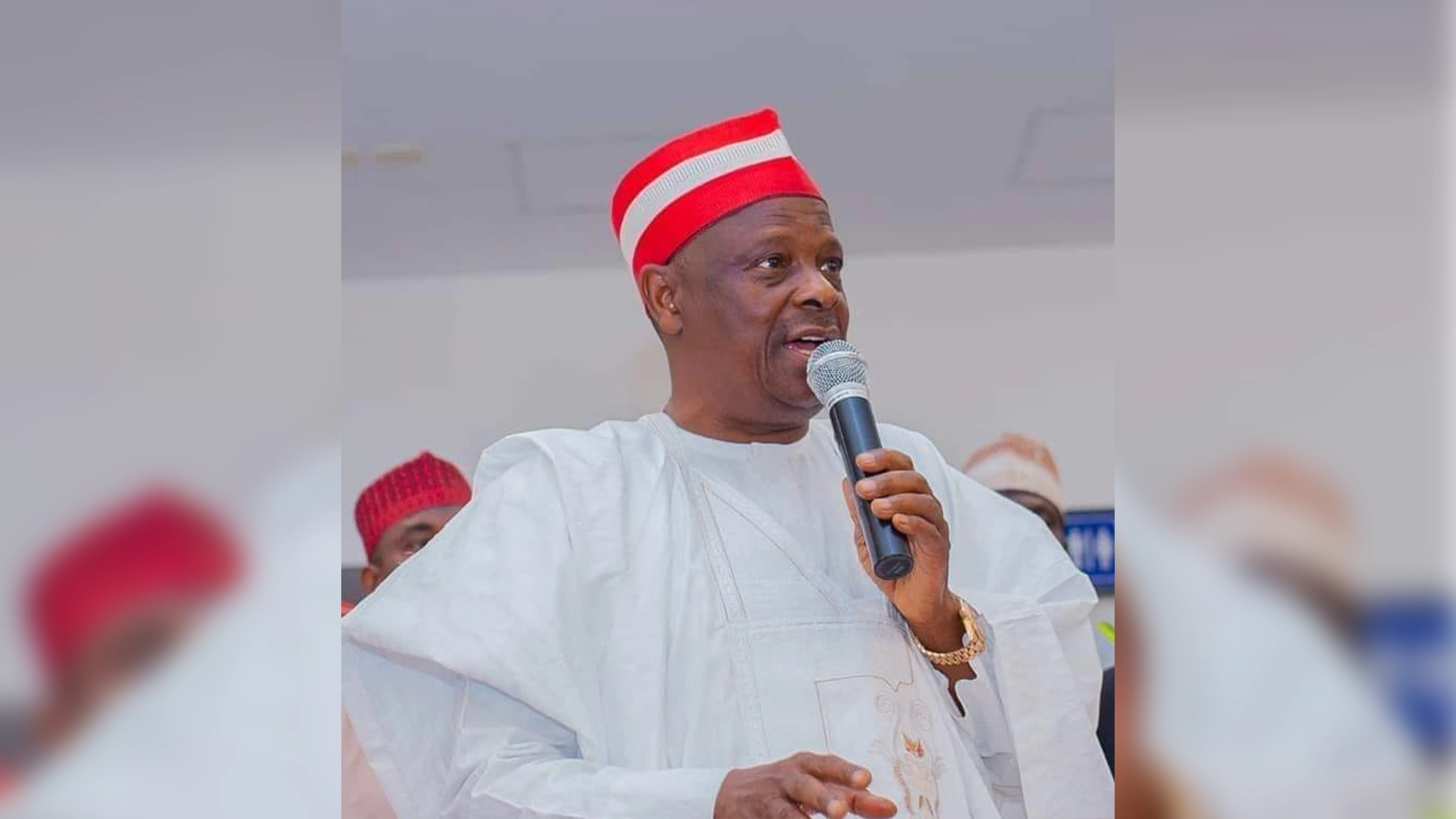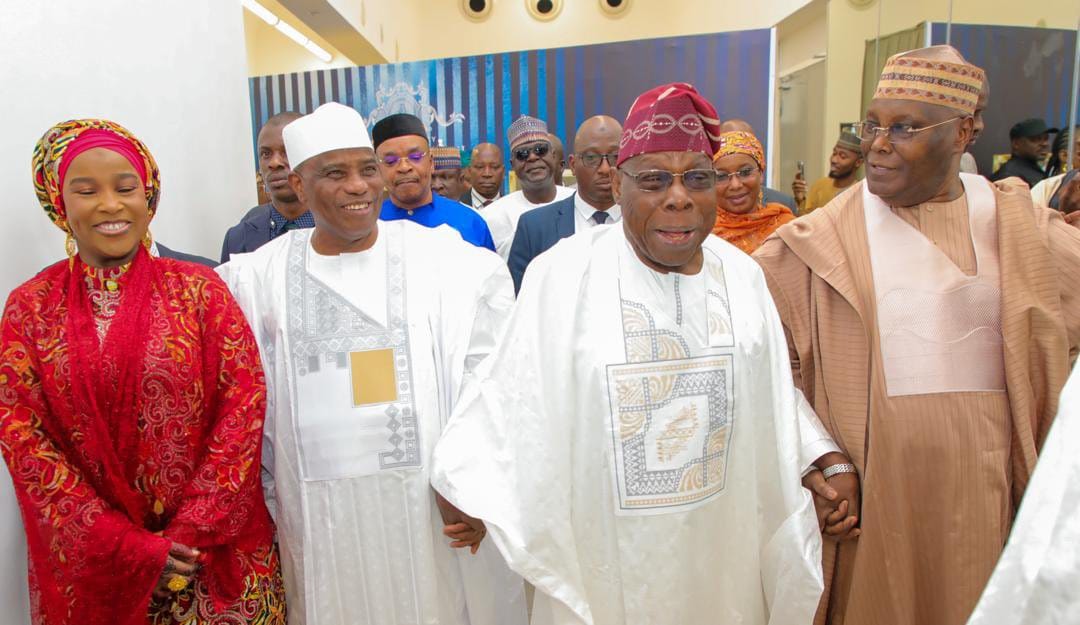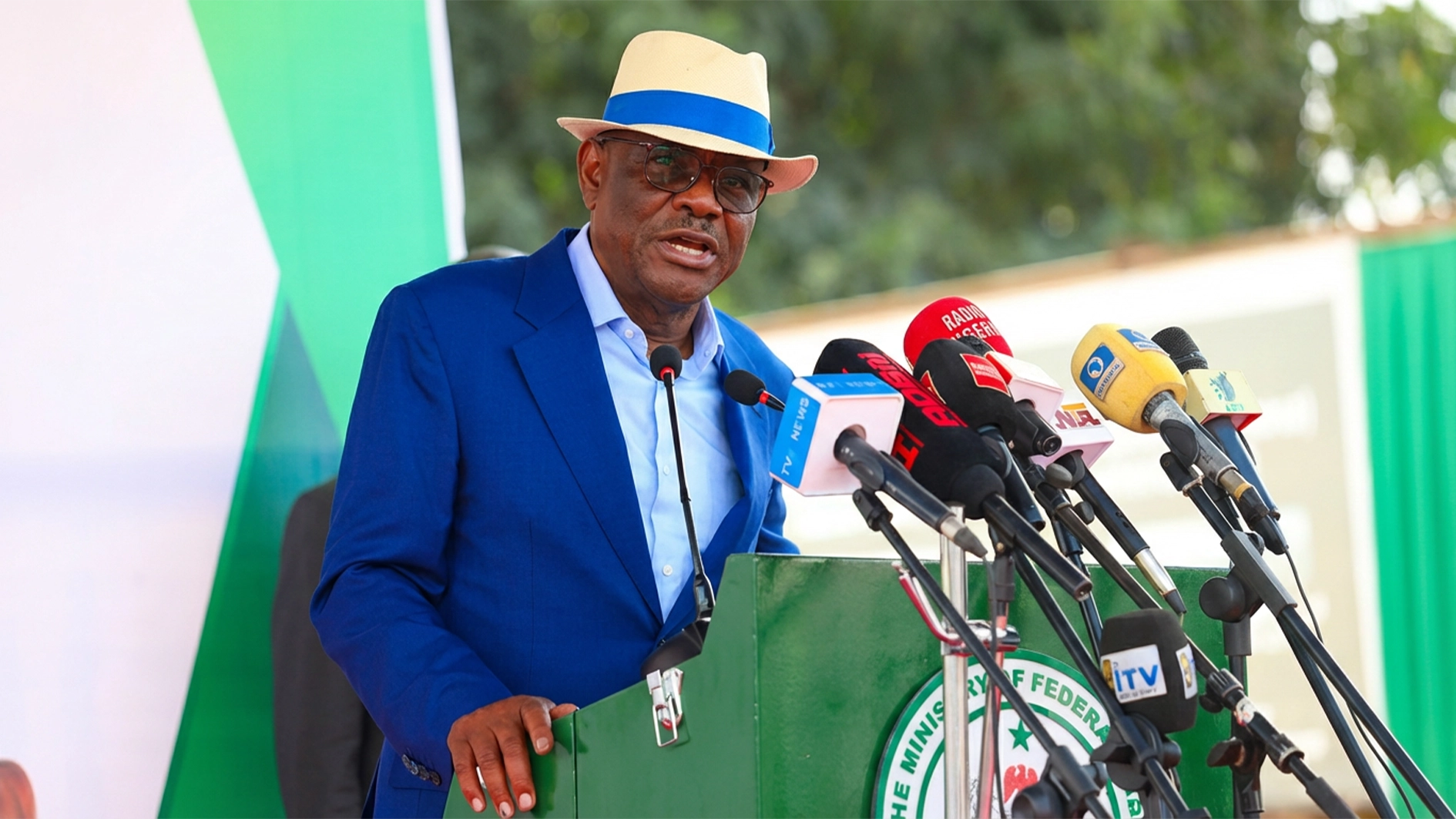
At that time, Mimiko, famed as a political Iroko of Ondo politics, was standing stoutly behind Eyitayo Jegede (SAN), the current Peoples Democratic Party’s (PDP) standard bearer for the October 10, 2020 gubernatorial poll in the state.
Although Jegede has rebounded as the PDP’s candidate in the forthcoming poll, Mimiko, who defected from PDP to quick-make Zenith Labour Party (ZLP) in search of political advancement to the senate in 2019, has also returned to the position of political godfather.
Mimiko’s return to relevance at the thick of another governorship contest in the state could be traced to recent ricocheting of incumbent Deputy Governor, Agboola Ajayi, from the All Progressives Congress (APC), off PDP to the ZLP.
Currently, Ajayi has remained most talked-about political stakeholder influencing the momentum of political discussions in the Sunshine state, owing to the fact that at each stop on his way to clinching a space in the ballot, he generated concerns and interest.
It is therefore the ultimate berth in ZLP, which Mimiko has helped to popularize that has not only raised the party as third leg in the gubernatorial tripod in Ondo State, but also stoke discussions around the place of godfather salesmen in gubernatorial elections.
How far do godfather-salesmen influence the outcome of electoral processes preceding the nomination and election of gubernatorial candidates? Are they motivated by altruism or belief that the voters are not capable of making informed choices on their own or to parade their influence?
Apart from Asiwaju Bola Tinubu, who has continuously powered his successors steadily from 2007 when he left office, other prominent former governors that occupied the position of governorship salesmen include, Peter Obi, Ayo Fayose and Adams Oshiomhole.
Of those former governors it is Mimiko’s recent bounce back that’s arousing curiousity and electoral lessons, particularly his troubadour across party lines before and after serving as governor, including his missed opportunities from those partisan voyages.
Moving ‘Iroko’
BY the time Mimiko left PDP for the Labour Party (LP), it was his way of protesting the process that threw up Chief Segun Agagu as the party’s gubernatorial candidate for the 2007 general elections. In the process of litigating against the outcome of governorship poll, which the Independent National Electoral Commission (INEC) returned Agagu as winner, Mimiko sought and secured the collaboration of the Action Congress of Nigeria (ACN).
But, when victory came his way, Iroko vacillated in joining the party, which was said to be part of the understanding that bolstered ACN’s support for his electoral litigation.
As governor, Mimiko’s search for a second term in office was threatened, partly on account of his alleged reneging from fulfilling his promise to join the ACN and have the entire Southwest within the progressive camp.
The emergence of incumbent governor Oluwarotimi Akeredolu as the ACN’s standard-bearer in the 2012 poll was believed to be all the party needed to requite him for dribbling them after reclaiming his mandate in 2008.
However, through a combination of factors, including his power of incumbency and beneath the table relations with the governing PDP, Iroko got his second term by trouncing Akeredolu and ACN.
Not minding the manner of his second term win, through inexplicable political calculations, particularly need to shore up then President Goodluck Jonathan’s second term ambition and the fall out of the Nigeria Governors’ Forum election, Mimiko moved over to the PDP, where he was to later become chairman of PDP Governors’ Forum, after Godswill Akpabio served out his second term in office as governor of Akwa Ibom State.
Having joined PDP barely a year to the end of his tenure and the party surprisingly losing the 2015 presidential election, Mimiko’s efforts to implant a successor in the person of Jegede ran into troubled waters. The outgoing governor, Jegede and PDP contended with a myriad of challenges including, leadership crisis in PDP, ACN’s ambush through the new governing All Progressives Congress (APC) and machinations of federal might.
Faced with those odds, Iroko could not deliver his preferred candidate, Jegede in the 2016 gubernatorial poll as Akeredolu and the APC trounced them.
Ordinarily analysts believe this October 10 governorship election would have provided a perfected setting for a repeat contest between APC/Akeredolu and PDP/Jegede/Mimiko, but for Mimiko’s political circuit.
However, whatever Mimiko missed by defecting to Zenith Labour Party, Deputy Governor Ajayi’s tour has restored by his recent move from PDP to ZLP like Mimiko.
With the recent development, Mimiko would regain the podium to serve as Ajayi’s salesman as the electioneering towards October 10 gathers momentum.
The other missed opportunities, which might not be readily compensated, were possible chairmanship of PDP in 2017, his senatorial race and input to the 2019 presidential poll.
Nevertheless, Mimiko’s current assignment of marketing Ajayi would show whether he would become the political godfather of Ondo State or chart his path towards joining APC or PDP.
It would be seen what Mimiko’s bragging rights would be if he decides to take Ajayi round the state or whether he would take the backseat and watch the gladiators, his protégés Jegede and Ajayi confront the incumbent, Akeredolu.
Return of ‘OshioBaba’
UNLIKE Mimiko in Ondo, Comrade Oshiomhole succeeded in delivering his preferred candidate, Godwin Obaseki, in 2016 and did not defect from APC. But four years after that feat, things have fallen apart for the former labour leader. He fought with his protégé, lost his exalted position as national chairman of APC, just as his former political son changed platform.
The return of Oshiomhole for the 2020 Edo State governorship poll is of a different hue, because situation and circumstances have entrust upon him the challenge of marketing the same candidate he demarketed in 2016. But, unlike in 2016 when he sold a band new product, this time around he is running against an incumbent with an old product, which is Pastor Ize-Iyamu and APC.
It is perceived by watchers of the tension soaked Edo governorship that Oshiomhole would have to grapple with some tough challenges, especially the belief in some quarters that he wants to use the governorship to validate his aspiration to regain his seat as APC national chairman.
The Director General (DG) of Progressives Governors’ Forum (PGF), Dr. Lukman Salihu, who exposed the scheme, said the former national chairman was working in cahoots with some APC stakeholders that interested in the 2023 presidential ticket to return as national chairman.
Salihu’s disclosure put a clue to concerns in Edo State as to why the former governor and national chairman was putting strenuous efforts in his bid to market Ize-Iyamu as if he (Oshiomhole) would be on the ballot on September 19, 2020 when the election holds.
Salihu had earlier cried out that the former national chairman was prosecuting the Ize-Iyamu campaigns as if it is an extension of his personal antagonism with the incumbent governor.
Alleging plots towards an unfair contest, Lukman, in a letter to the caretaker committee chairman, Mai Mala Buni, said: “Everything is being done to ensure that the internal politics of the party is manipulated to create situations whereby Oshiomhole is forcefully made a contender for the position of national chairman at the extraordinary national convention.”
While sustaining the veiled allusions to the possibility of the former national chairman resorting to electoral heist to achieve a victory that could serve as his bragging right, Lukman said that explains why “unacceptable strategies are being deployed to blackmail and bully all APC leaders to make the Edo election the only priority of the party.”
All said, Oshiomhole despite his political circumstances has pushed himself into the mix of complex dynamics driving Edo State governorship poll emboldened by the belief that Obaseki has no major salesman to market his second term bid.
Fayose’s severe pain
IN 2016, one other state that paraded a godfather-salesman in the person of the outgoing governor, was Ekiti. The image of former governor Ayodele Fayose, sprawling on the ground with a neck collar as he cried out that should anything untoward happen to him, Nigerians should hold the APC and security agencies responsible remains etched in people’s minds.
Parading his 16-0 electoral result that made him vanquish the then incumbent Governor Kayode Fayemi, Fayose descended into the nomination arena of the PDP governorship primary by throwing his weight around his deputy, Prof. Olusola Eleka.
Although Fayose’s intrusion in the nomination process affected PDP’s cohesion on the way to the main election, the outgoing believed that the giant killer appellation he got by vanquishing the incumbent four years before would put him and his preferred candidate, Eleka, in good stead for eventual victory.
That was not to be because with the clash between stomach infrastructure and see and buy, Dr. Fayemi staged a dramatic comeback by trouncing Fayose, PDP and the law professor, Eleka.
Winning in four out of the 16 local government areas of the state, Eleka complained that the 197, 459 to 178, 121 votes Fayemi used to defeat him were procured by inducement, oppression by security agencies and manipulation of the process.
Although Eleka petitioned the governorship election tribunal with the complaints that APC and its candidate leveraged ‘federal might’ to beat him at the polls, observers blamed Fayose’s theatrics and salesman approach for tilting voters’ preference against Eleka.
With the wrangling between the former governor and Senator Biodun Olujimi over the control of Ekiti PDP structure preparatory to the 2022 governorship, it is not known whether Fayose would part ways with Eleka and align with another aspirant against Olujimi.
However, he (Fayose) must be studying developments in Edo and Ondo to see how far godfather salesmen can fare in influencing election outcomes.
Obi’s Obaze gambit
AS governor, Mr. Peter Gregory Obi succeeded in implanting his preferred candidate, Chief William Maduburochukwu Obiano, as his successor in 2013.
Things went on very well initially as Obi, during an elaborate ceremony at the Government House, Amawbia, disclosed the contents of his handover notes to Obiano, adding that in addition to setting aside monies for ongoing projects, the sum of N75billion in cash and investment notes.
But, midway into his administration, Obiano fell out with his benefactor, alleging that the bone of contention was the demand by Obi on him to refund him the sum of N7billion spent in the course of prosecuting the election that brought him (Obiano) to power as governor of Anambra State.
Though Obi laughed off Obiano’s claims that he demanded N7billion from the governor as “baseless and idiotic,” the stage for a bitter political feud was set. And in 2017, Obi, who had changed political platform from All Progressives Grand Alliance (APGA) to PDP, threw his political clout around Mr. Oseloka Obaze, his former Secretary to the State Government (SSG), to challenge Obiano as he sought a second term.
Frightened by the array of political ‘field marshals’ arrayed against him, Governor Obiano emulated Obi by forging a political understanding with Abuja to take refuge under federal might and ward off the stiff electoral challenge.
As the former governor campaigned strenuously across the major markets, churches and communities in Anambra State, subdued complaints among the voters made the rounds in the state wondering why Obi, who enjoyed two terms in office should be all over the place to sell another candidate against his first offering.
When INEC announced the result of the governorship poll that November 31, 2017, Obiano was returned elected, beating Obaze, Obi’s candidate and PDP to the third place in an election that was said to be fraught with uneven access to security and polling materials.
By next year Anambra State would be going to the polls to elect Obiano’s successor and Obi has so far distanced himself from the nomination process within the PDP, even as the party has ruled out zoning in its preparatory steps.






